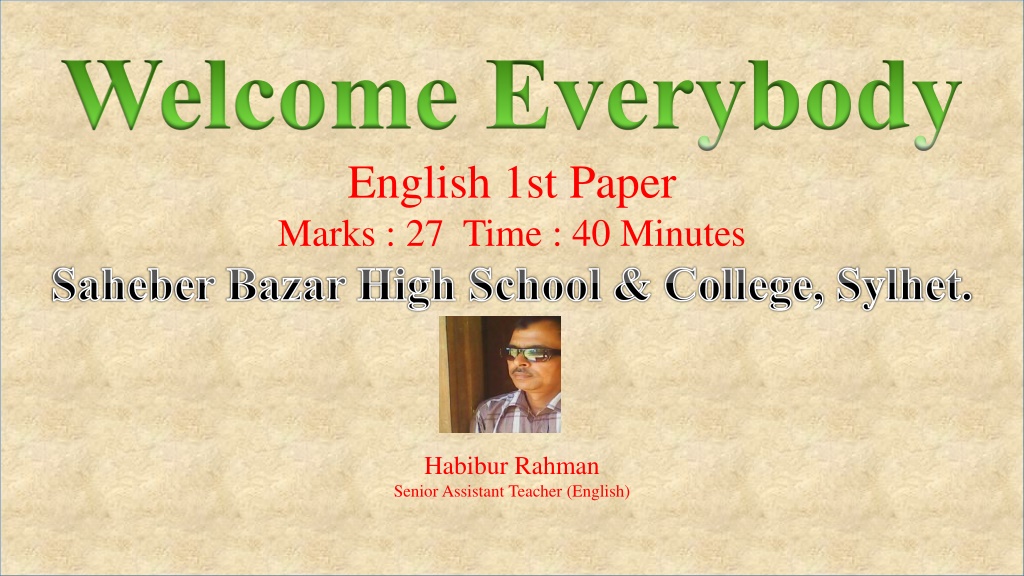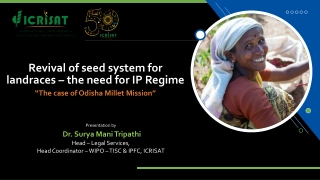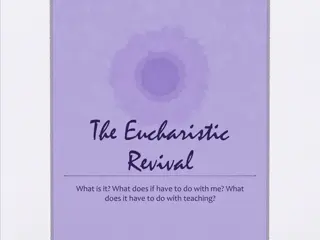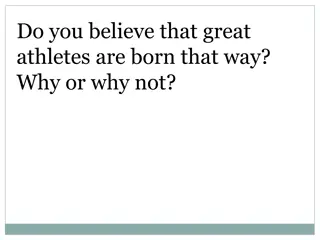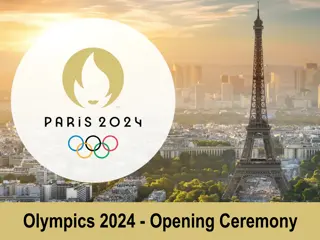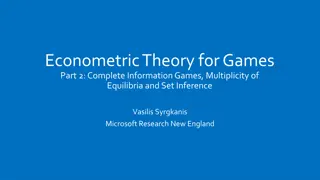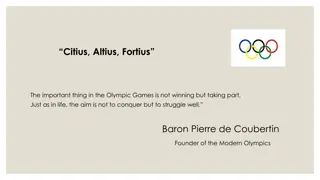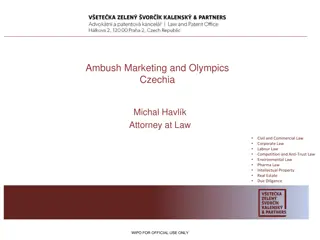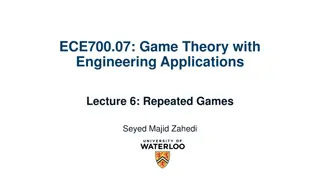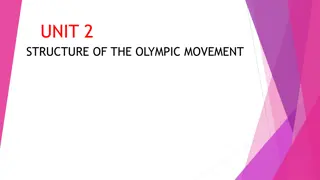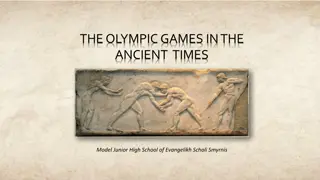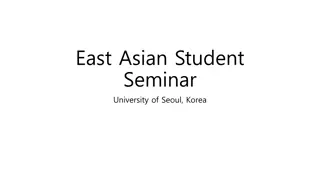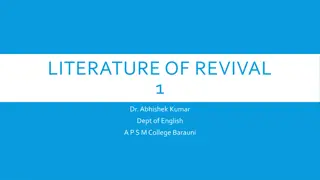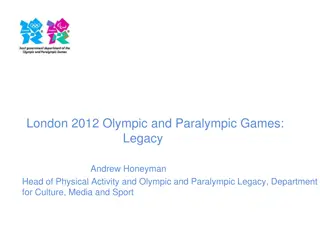History of the Olympic Games Revival
The passage highlights the cessation and revival of the Olympic Games, tracing back from ancient times to the modern era. After a 1500-year hiatus, Baron Pierre de Coubertin's efforts led to the rebirth of the games in 1896 with a new global competition framework. His vision aimed to promote unity and friendship among nations through athletic contests, marking a significant shift in the purpose of the Olympics.
Uploaded on Oct 09, 2024 | 0 Views
Download Presentation

Please find below an Image/Link to download the presentation.
The content on the website is provided AS IS for your information and personal use only. It may not be sold, licensed, or shared on other websites without obtaining consent from the author.If you encounter any issues during the download, it is possible that the publisher has removed the file from their server.
You are allowed to download the files provided on this website for personal or commercial use, subject to the condition that they are used lawfully. All files are the property of their respective owners.
The content on the website is provided AS IS for your information and personal use only. It may not be sold, licensed, or shared on other websites without obtaining consent from the author.
E N D
Presentation Transcript
Welcome Everybody English 1st Paper Marks : 27 Time : 40 Minutes Saheber Bazar High School & College, Sylhet. Habibur Rahman Senior Assistant Teacher (English)
Read the text. Then answer the question below. The Olympic Games went on in Greek and Roman times. But in 394 AD the Roman Emperor stopped the games forever. For 1500 years no games were held again. Towards the end of nineteenth century a Frenchman called Baron Pierre de Coubertin suggested that the ancient Olympic Games should be revived. But their purpose would be different. They would be held as a contest not among the Greeks but among the nations of the world. He hoped that athletes and sportsman meeting every four years and competing against one another would make themselves friendly to one another. His suggestion was not immediately accepted. He and his supporters tried for years to hold the games. At last they succeeded and the first modern Olympic Games were held in 1896 in Athens, the capital city because the original site at Olympic was no longer suitable.
1. Choose the best answer from the alternatives. a. Baron s suggestion was accepted . i) immediately ii) after several years iii) after 4 years b. People participated in modern Olympic Games. i) of Rome ii) all over the world c. The synonym of revive is . i) dead ii) come to life d. Which of the followings best describes the word compete ? i) communicate ii) run e. There is a between the purposes of the ancient and modern Olympic Games. i) similarity ii) sameness iii) difference f. What does the phrases towards the end mean? i) end of ii) finishing of iii) earlier of g. For how many centuries were no game held? i) 1500 ii) 150 iiii) 15 iv) as soon as he proposed it iii) of Greece iv) of Athens iii) requite iv) goal iii) fight iv) complete iv) unity Answer the question no. 1 a. b. c. d. e. f. g. ii) ii) ii) iii) iii) iv) iii) iv) last part of iv) 5
Answer to the question no. 2 2. questions. a. What is the purpose of modern Olympic Games ? b. Who is Baron Pierre de Coubertin ? c. How can athletes and sportsmen become familiar with each other ? d. How did people react at the suggestion of Baron Pierre de Coubertin ? e. What was the original venue of the Olympic Games ? Answer the following a. The purpose of modern Olympic Games was to arrange a contest among the nations of the world. It would make the people of different nations friendly. b. Baron Pierre de Coubertin was a French man. He played the most vital role in reviving Olympic Games. c. Athletes and sportsmen can become familiar with each other by participating in the contest and exchanging their feelings. d. People did not react well at the initial stage. But after a few years Baron s attempts succeeded. e. The original venue of the Olympic Games was Olympia.
3. Write a summary of the passage in not more than 90 to 100 words. Answer: The passage deals with the history of Olympic Games. During the Greek and the Roman times, the Olympic Games were going on well for many years. But in 394 AD it was stopped by the then Roman emperor. For the next 1500 years, it was not held. However, the end of 19the century, a French man came forward to revive the Olympic Games. His purpose was different from that of the ancient Olympic Games. His purpose was to create the spirit of friendship among the nations of the world. Fanilly his suggestion was accepted and consequently, the first modern Olympic Games was held in 1896.
